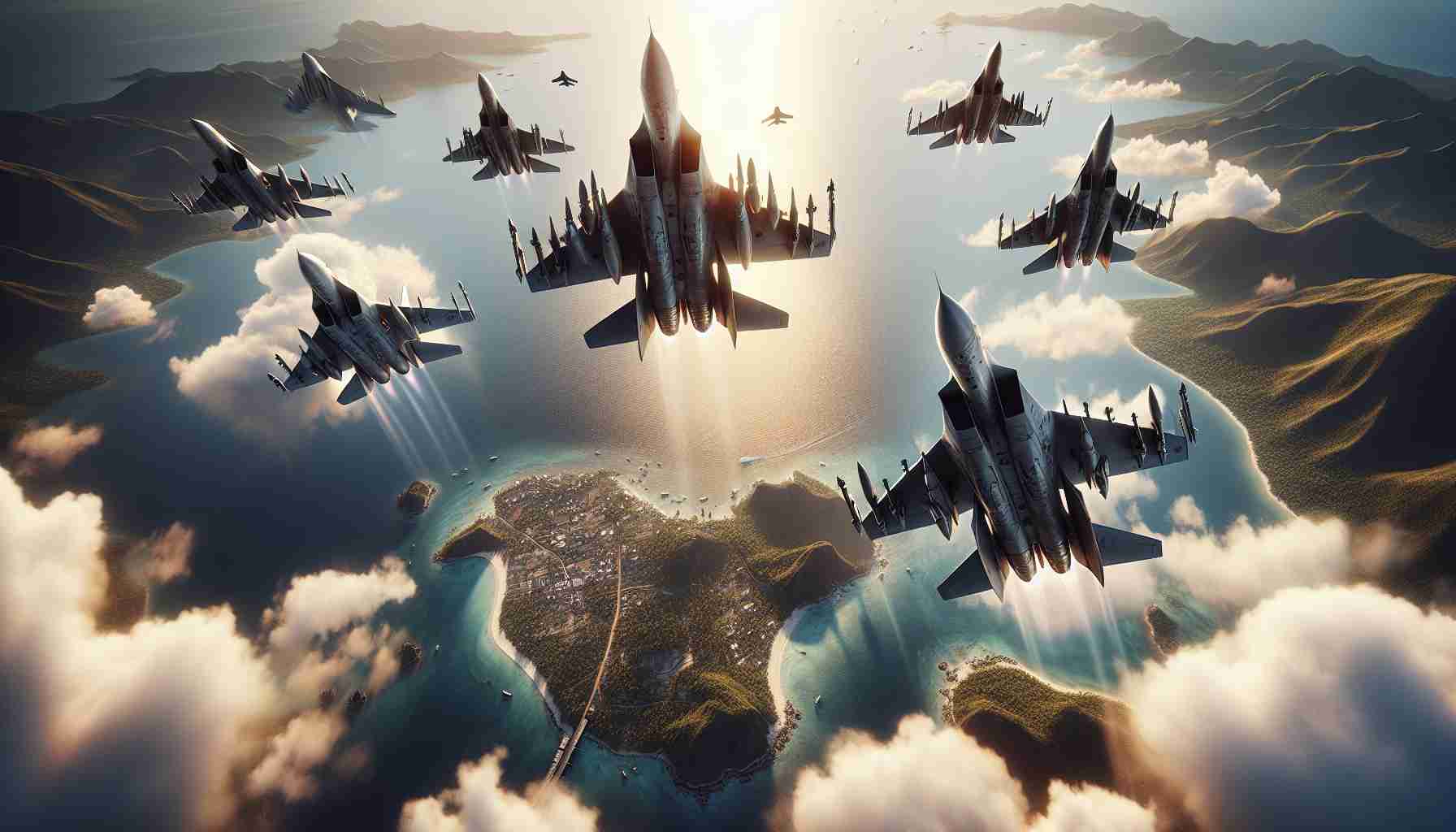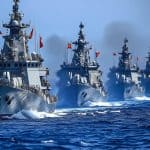Over two eventful days, more than 40 Chinese military aircraft have encircled Taiwan, highlighting heightened tensions between Beijing and Washington. Taiwan’s Ministry of National Defense (MND) reported that 25 Chinese aircraft flew near the island within 24 hours, specifically targeting areas southwest and southeast of Taiwan. Alarmingly, 13 of these aircraft crossed the median line of the Taiwan Strait, a demarcation that both sides had respected for years.
In a similar pattern, another 20 Chinese jets were detected in the 24 hours leading up to Friday morning, 18 of which breached the same symbolic boundary. The frequent military maneuvers have prompted Taiwan’s armed forces to remain vigilant. The island’s defense systems have been actively monitoring the situation, deploying aircraft, naval vessels, and missile units in a robust response.
This surge in military activity coincides with a diplomatic rift, highlighted by China’s Defense Minister Dong Jun’s refusal to engage with U.S. Secretary of Defense Lloyd Austin at an ASEAN summit. China claims this was in protest against U.S. arms sales to Taipei, a move it sees as undermining its interests in the Taiwan Strait.
Beijing’s consistent military pressure reflects its stance on Taiwan, which it views as a renegade province. With the recent inauguration of Taiwan’s President William Lai, tensions appear to be climbing. The Taiwan debate remains a significant source of friction between China and the U.S., given America’s role as Taiwan’s chief arms provider and potential ally in conflict.
How China’s Military Movements Around Taiwan Are Shaping Global Technological Advancements
In a dramatic escalation of regional tensions, a sequence of military operations by China around Taiwan has raised new discussions not only about geopolitical strategies but also about its implications for the future of technology and humanity. While the immediate focus has been the political friction between China, Taiwan, and the U.S., the deeper narratives of technological advancements and ethical concerns are coming to light.
The Intersection of Military Tactics and Tech Innovation
China’s actions around Taiwan are underpinned by advanced military technology, which undoubtedly pushes the envelope for innovation worldwide. The People’s Liberation Army’s aircraft, which engage in these maneuvers, are equipped with sophisticated systems, many of which can be attributed to the meteoric rise of China’s tech sector. For instance, these aircraft likely incorporate advances in artificial intelligence, data analytics, and autonomous operations, showcasing how military needs can drive technological breakthroughs.
Advantages and Potential Benefits
The military developments spurred by these tensions can inadvertently benefit civilian applications in several ways:
– AI and Autonomous Systems: The use of AI in military contexts can fuel the growth of autonomous systems in civilian sectors, such as self-driving cars and predictive analytics in healthcare.
– Data Security: Enhanced military communications demand robust cybersecurity measures, which can lead to better data protection standards for global internet users.
This cross-pollination between military and civilian technologies often leads to improvements in efficiency and safety across various domains.
The Ethical Dilemmas and Controversies
However, these advancements are not without ethical and moral dilemmas:
– Privacy Concerns: The surveillance technologies perfected for military uses can easily transition into civilian life, raising concerns about individual privacy and state overreach.
– Weaponization of AI: As AI becomes more integral to military operations, the potential for its misuse escalates, leading to urgent discussions around international regulations.
The Global Arms Race Question
As China bolsters its military capabilities, it compels other world powers to do the same, feeding into a global arms race. But is this escalation necessary, or are we on the brink of mutual destruction?
While some argue that a strong military presence ensures peace through deterrence, others worry about the unsustainable economic and environmental costs. Is there a balance that can be achieved, fostering both security and technological progress without tipping towards conflict?
Broader Implications for Human Development
The ongoing tensions in the Taiwan Strait offer a preview of how military actions can influence global human development. The dual-use nature of these technologies can lead to safer and more efficient societies if developed responsibly. However, they can also set the stage for increased surveillance and loss of privacy if left unchecked.
For readers interested in exploring the role of technology in society, platforms like Brookings offer insightful analyses on global policy impacts. Likewise, to understand more about AI ethics, World Economic Forum frequently discusses these challenges.
Ultimately, as tensions continue, the challenge for humanity is to harness the innovations driven by such conflicts for the greater good, ensuring that technological progress aligns with ethical governance and international cooperation.







